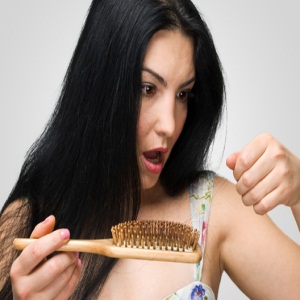
Some women experience hair loss during and after pregnancy. Hair loss is a common occurrence due to many different factors. If you notice a change in the amount of hair you are losing, don’t be alarmed. It is typical and can continue up to six months after you’ve given birth. Here is some information on pregnancy and hair loss that Parker Trichology experts want you to know.
A Shift in Hormones
It’s no secret that your hormones are shifting during and after pregnancy. This hormonal shift is one cause of hair loss. The changes in hormones put your body under a lot of stress, especially in the first trimester. That causes the hair on your head to go into the telogen or “resting” phase, which leads to losing more hair. However, this shift isn’t very noticeable for a few months. It also is not permanent and usually does not last for more than six months.
Thyroid issues
Thyroid problems tend to occur during pregnancy. Usually, it is hypothyroidism, but it could also be hyperthyroidism. These are difficult to detect, but one symptom is hair loss along with muscle cramps, constipation, and exhaustion. These conditions affect around 2 to 3 out of 100 pregnant women. Some continue to experience thyroid issues after the baby is born, but that is less common.
Iron Deficiency
Iron deficiency is another problem that occurs during pregnancy, which causes hair loss. Your hair won’t have permanent damage, but you won’t see it return to pre-pregnancy thickness until the vitamin and hormone levels return to normal. Iron deficiency is detected through a blood test. It is most common in pregnancies of multiples, pregnancies that are close together, or if you experience severe morning sickness.
Postpartum
It’s very common for women to experience excessive shedding after giving birth. Postpartum shedding usually occurs around 4 months after delivery. A large drop in estrogen causes it.
Tips for Managing Hair Loss
- Keep a healthy diet and continue to take your prenatal vitamins.
- Be extra gentle with your hair. Only shampoo it when it’s necessary and use a high-end conditioner. Use a wide-tooth comb to detangle your hair. Don’t put your hair up in tight ponytails. If you must pull it up, use a scrunchie or barrettes instead of rubber bands.
- Skip the heat. Try to stay away from hair dryers, flat irons, and curling irons. Heat only hurts your hair.
- If your hair loss doesn’t subside and you have other symptoms, talk to an expert. Long-term hair loss could be an indicator of a larger issue.
Our experts at Parker Trichology hope that this guide to shedding during pregnancy puts you at ease if you experience these issues. Hair loss comes with pregnancy, so it is perfectly normal. If you are still concerned, feel free to give us a call the Parker Trichology Centre! We would be happy to have a consultation with you to figure out the problem.



